
Prof. Yasmin Saikia
Co-Director of Center of Muslim Experience in the USA
at Arizona State University (ASU)
Despite the integral role of Muslims in India's history, culture, and society, it is both surprising and concerning that there is no formal academic program dedicated to the study of Indian Muslims, either within India or anywhere in the Western academia.
Naushad Khan Ghilzai
President FAAA (Federation of Aligarh Alumni Associatios)
Inc North America
Indian Muslim Endowed chair will be a unique opportunity to highlight and preserve our Islamic history, cultural heritage and values. It will increase the academic and intellectual curiosity about Indian Muslims and provide crucial support for exemplary scholarly work on variety of topics ranging from Islamic philosophy and literature to modern education reforms and political thought. This endowed chair will serve as an academic and historical tribute to the contributions of Indian Muslims and continue to shape research and policy related to education, gender equality, culture, and religion in India.
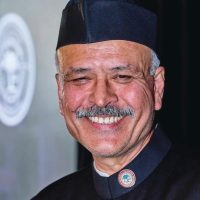
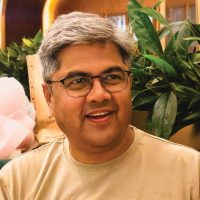
Amir Ullah Khan
Professor and Director, Centre for Development Policy and Practice
Studying the Indian Muslim is to take a deep dive into diversity and heterogeneity, history and tradition, wealth and poverty, deprivation and discrimination. There is a wealth of data contained in centuries old documents, buildings and folklore that has yet not been looked at. This centre would be a unique contribution to understanding communities, their aspirations and their insecurities.
Ayub Khan
Researcher and South Asia Specialist
The rich and varied experiences of Indian Muslims have been not received adequate attention in the academia. A dedicated endowed chair in a major university will lead to a new flowering of scholarship focused on Indian Muslims. The time for for this is now.

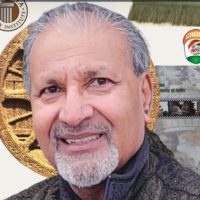
Dr. Abusaleh Shariff
Chief Scholar, US-India Policy Institute, Washington D. C
This endowment at the ASU is an opportunity for quality research and documentation of the contributions of Muslims in the Indian nation building. Professional and unbiased approaches are essential in understanding the diversity, demography, economy and history of contemporary India. Institutionalizing constitutional rights of Muslims has been a work in progress, now stalled or even reversed. Innovative methodologies are essential to empower Muslim women and youth within the internationally recognized frame of Equal Opportunity
Prof. Samina Salim
Associate Professor University of Houston,
Board Member, Indian American Muslim Council (IAMC)
The rich and varied experiences of Indian Muslims have been not received adequate attention in the academia. A dedicated endowed chair in a major university will lead to a new flowering of scholarship focused on Indian Muslims. The time for for this is now.
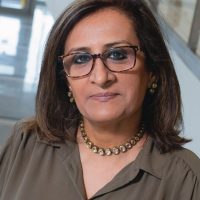
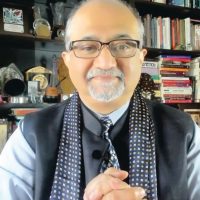
Prof. Muqtedar Khan
University of Delaware and the Ibn Khaldun Center in DC.
Knowledge is a function of power. Indian Muslims despite their large numbers are unfortunately quite powerless at the moment. One of the consequences of the entrenched Hindutva ideology in Indian society is a rewriting of India’s history with the dual goals to demonize Indian Muslim past and marginalize them in the present. An Indian Muslim Studies program, located outside India, can bear witness to contemporary history and politics through intimidation free scholarship.
Prof. Mohsin Alam Bhat
Assistant Professor at Queen Mary University of London
Indian Muslims have a rich religious, cultural and political life, and their experiment with modernity and democracy deserves greater research and social attention. Indian Muslim Endowment chair will provide an excellent opportunity to study the history and contemporary life of this remarkable community with academically rigour and nuance, in a credible university environment
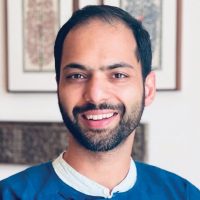

Prof. Afsar Mohammad
University of Pennsylvania
It's high time that we need more studies on Islam and Muslim community at various universities in the USA. The growing numbers of Muslim diaspora in India undoubtedly make this an urgent matter to be addressed. More Muslim studies chairs mean more understanding of Muslim societies and more visibility to minority discourses. It's also important that such studies should promote a diversity and pluralism in comprehending contemporary issues.
Mohammed Jawad
National President, Indian American Muslim Council (IAMC)
Indian Muslims have a rich religious, cultural and political life, and their experiment with modernity and democracy deserves greater research and social attention. Indian Muslim Endowment chair will provide an excellent opportunity to study the history and contemporary life of this remarkable community with academically rigour and nuance, in a credible university environment
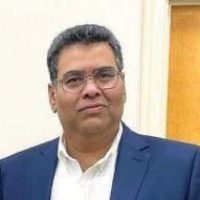

Safa Ahmed
Media Associate, Indian American Muslim Council (IAMC)
As a second generation Indian American Muslim, I have seen firsthand how Indian Muslims’ history, culture, and heritage have been roundly demonized to fit a dangerous ethnonationalist narrative, with little to no resources to counter this demonization. In times like this, it becomes more important than ever to ensure that this rich and important history is not erased, and is accessible to those in the diaspora who want to learn more about their heritage. An Indian Muslim Studies program would help Indian Muslims in the diaspora to not only reconnect with their ancestral identity, but also to push back against the misinformation that too often is associated with our history.
Prof. Irfan Ahmad
Professor of Anthropology - Sociology Ibn Haldun University
Given the rise of donors and other vested interests promoting a selective narrative of India's history, it becomes imperative for Indian Muslims to enhance their voices through substantial contributions to higher education and in academia. The emergence of harassment against faculty and students not aligned with discriminatory majoritarian ideologies emphasizes the need for alternative voices.

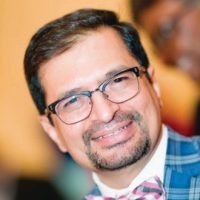
Akram N. Syed
Entrepreneur | Cofounder, Islamic Association of Collin County,
Past President, American Federation of Muslims of Indian Origin (AFMI)
A holistic study of Indian Muslims will be an excellent idea. The objective and unbiased findings can pave a way to preserve its identity, culture, lifestyle and uniqueness. This endowed academic chair’s mandates should aim to focus on the socio-economic, political, and humanitarian challenges and survival of this major demography of the region. The research and reports will reveal the ways the global human activity and endeavors will affect the Indian Muslim ecosystem and hopefully become an academic dossier in documenting and indexing the historical and chronological context of the world’s biggest ethnic sub-group.
Dr. Hyder Khan
Chairman of Board, US India Policy Institute
An endowed chair of Indian Muslim Studies at a U.S. university would fill a critical gap in global scholarship, especially as Indian Muslims—the world's third-largest Muslim population—face a political climate where their historical contributions are increasingly marginalized. In India, historical narratives of Muslim rule are being rewritten to malign these communities, obscuring centuries of cultural, scientific, and political influence. This chair would attract leading scholars to produce rigorous, balanced research, fostering intercultural understanding and offering students crucial perspectives on religious diversity, social justice, and global interconnectedness. It would also position the university as a leader in promoting cross-cultural dialogue and inclusive education
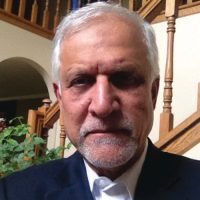

Amina Ahmed
Aspiring Human Rights Attorney
As a second-generation Indian-American Muslim, I feel a profound connection to the rich history, culture, and contributions of Indian Muslims. With rising efforts to distort and erase these contributions, there is an urgent need for an academic platform that preserves and celebrates our heritage. An endowed chair dedicated to Indian Muslim Studies would provide a foundation for accurate, unbiased scholarship, helping future generations understand the diverse legacy of Indian Muslims—a legacy that honors the past and inspires a more inclusive future. Establishing this chair would be a decisive step toward building an enduring legacy for Indian Muslims, rooted in truth and inclusivity. Such scholarship would be an invaluable resource for all, especially for second-generation Indian Muslims like me.
Dr. Tayeb Jukaku
Physician and Philanthropist
The glorious history of Muslim contributions to the heritage and foundation of the Indian civilization may soon be lost in the current climate of prejudiced and outright Islamophobic narratives which have gained currency and prominence in the country under ultra nationalist propaganda. The acute need for dedicated scholars of Indian Muslim history, who employ rigorous academic methodology and strict standards of accuracy in their research, is imperative at this time. The rich archives of our past may be lost to history and nationalist agendas if we do not act with determination and urgency. We have an opportunity here to contribute to a virtuous cause in the hopes of preserving our history so that the future generations can know where they came from, what their forefathers contributed to this great civilization and help them forge a future rooted in a true understanding of the past.
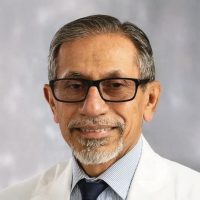
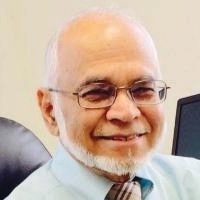
M.T. Ali Niazee, PhD
Founding President, Northwest Suburban College
Indian Muslims are one of the world’s largest Muslim communities, with over
220 million people. Historically significant, they ruled India for nearly a
thousand years and made substantial contributions, including in administration,
transportation, horticulture, and architecture. Under Emperor Shah Jahan,
Mughal India generated about 40% of the world’s GDP. Iconic structures like the
Taj Mahal and Qutub Minar are lasting symbols of their influence on the
subcontinent.
Unfortunately, after independence of India, due to a systematic discrimination,
muslim contributions both in science, technology, fine arts, administration,
agriculture and architecture have been overlooked and forgotten. The Indian
Muslim diaspora across the globe recognize this fact and would like to come
together to take the initiative of starting a chair at a major university in the US
that will provide, research, teaching and communication of recognizing the
role of this great community in the recent past the glorious past. We are
thankful to Arizona State University and congratulate them in accepting this
hour of establishing a Chair to Recognize Indian Muslim community.
Please contribute generously to this endeavor.
© All Right Reserved – 2024. Indian Muslim studies. Developed by Alagzoo Software.
